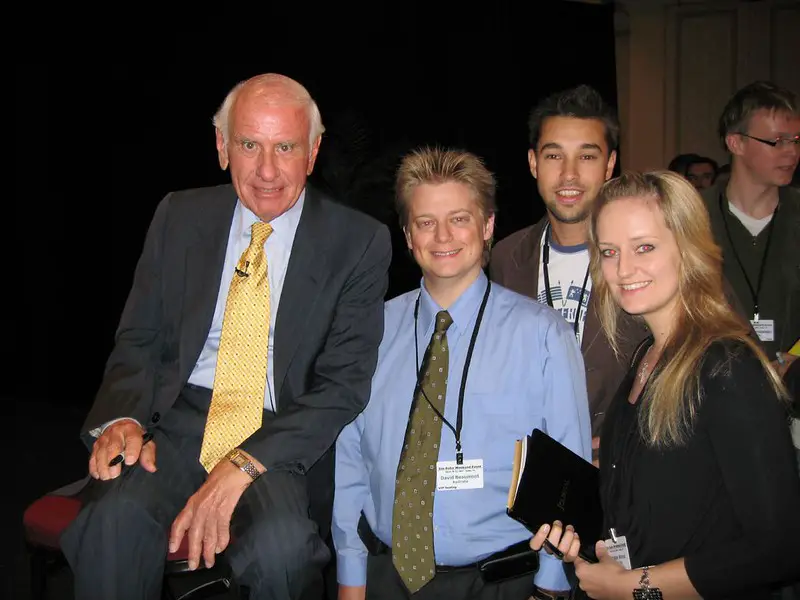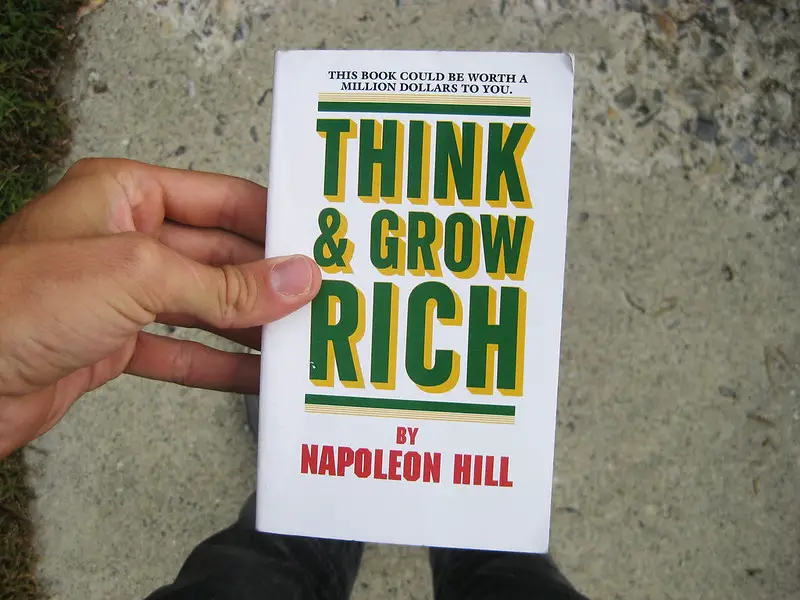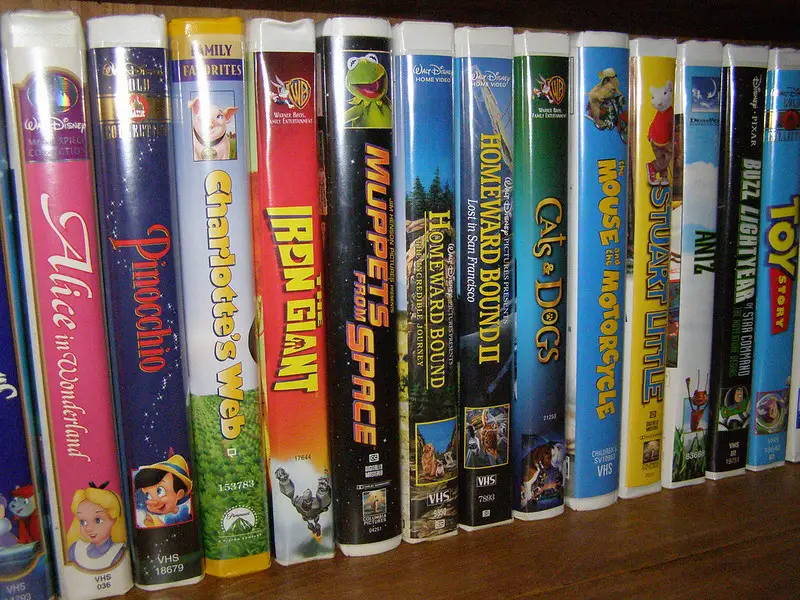Do you usually see yourself frustrated by money issues? Do you feel as though success is a thing that is not attainable, existing just in your dreams? If that is the case, you’re far from alone.
Jim Rohn the author, felt like that himself when he dropped out of college and started working as a human resource manager. He worked really hard for six years still he was stuck in the same position, with the same pay.
But, things changed when he came across Earl Shoaff his mentor. Under Shoaff’s direction, he learned effective ways of accumulating wealth through discipline and focuses effort. By applying them, he turned to a millionaire at the age of 31.
Although wealth and success can signify different things to different people, abiding by the seven strategies in this book can assist you to reach any financial goal –maybe it’s turning into a millionaire or releasing yourself from debt. Therefore, let’s begin.

Chapter 1 – Setting goals that are clear will assist you to discipline yourself and form structure.
Reflect back to the last time you finished one of your goals or canceled out an item from your to-do list. What occurred afterward? Unavoidably, another duty came up to take its spot.
Although this may look annoying, it’s eventually a good thing. You don’t want to only possess a goal at a time because after you accomplish it, you could be left lost and purposeless.
Think of the Apollo astronauts after they got back from their life-changing journey to the moon. Unfortunately, a lot of the astronauts fell became depressed since they didn’t have anything to strive for anymore. Presently, as part of their compulsory training, astronauts create goals to work toward achieving after their missions are finished.
You as well should create and goals. To begin, it’s essential that you create some time aside to work on them. Attempting the following journaling practice to assist you to envisage your long-term goals and get you pondering on how to attain them.
Take a notebook and ponder on what you wish to attain in the following one to ten years. After, note down a list of those goals as fast as possible. Attempt about 50 goals altogether.
After you finish your list, allocate every goal to one of four groups based on the time you think it will require to attain: one, three, five or ten years.
After, balance your list in order for you not to have a lot of goals in any one group. Take out items from groups that have a lot of goals and include new goals to groups with too little.

After circle the four most essential goals from each group. Then, you should now have a list of 16 goals all in all.
Lastly, write down a paragraph on each goal. In the first half of every paragraph, write down precisely what the goal is all about. If it’s a good you want to buy, for instance, write down the type, color, price, and any other important information. In the second half of the paragraph, write down the reason why you want to attain each goal. If you can’t come up with a strong enough reason, it’s possible this specific goal isn’t worth your time. Then, think of changing it with another goal.
After you’ve refined your list, you’ll be able to go back to it to monitor your progress and evaluate which goals are still significant to you and which goals aren’t.
Chapter 2 – Self-led learning is crucial to wealth and personal growth.
In the majority of the industries, people don’t expect to get successful without years of study and training. Consider medicine. Nobody would try a triple bypass surgery without having to first learn the human heart for years. Therefore, how could anybody expect to become rich and successful without ever studying, for instance, financial management or how to manage a business?
Luckily, you don’t need to use time and money at a university to learn how to double your wealth. Rather, you can do that through self-led learning.
One method to begin is to take lessons from your day-day-day experiences. For you to this, create time for self-reflection at the end of every day. Attempt to remember every important incident that occurred in as much detail as you can. Specifically, attempt to recognize anything you did that worked very well or poorly. This will show you what to repeat and what to evade in the future.
A different method to utilize self-led learning to determine strategies for success is to take understanding from audio-recordings, books, and videos. Specifically, look for the life history of successful people and how-to books, like the classic Think and Grow Rich by Napoleon Hill.
While you’re reading about successful people’s guidance, you’re will definitely have a question. Therefore, why not ask a person that can offer you good replies to those questions? Here’s a counterintuitive method to do it: look for a person you see as rich and successful and ask them out to dinner. Certainly – that signifies that you should pay for the bill, which could be costly. However, the cost will be worth it if you use your time well, inquiring about strategies to grow your income.

The more time you use with these successful people, the better. Therefore, attempt going for talks or seminars to notice the behavior of people you love. Listen attentively to small gestures, such as manner a businesswoman shakes hands. If you can find traditions that successful people share, you can utilize these in your own personal life.
Whichever means you decide on to gain wisdom, it’s worth investing a bit of your time and money. Have a minimum of 30 minutes per day for learning, and a little part of your salary every month. Why? Because you can invest the understanding you gather in your future, and a few dollars here and there immediately starts to add up.
Chapter 3 – Remove obstacles to your personal growth and grow your value.
How often have you thought to yourself, “It’s not possible for me to be on time; that’s just how I am?” Or “I can’t help that I’m a messy person.”
As normal as words like these are, they ruin our self-esteem and make us feel like we’re not able to defeat our natural predispositions. However, as a matter of fact, your self is one of the small things you can alter. Also, by bettering yourself, you increase your value as a worker, friend or partner.
Unluckily, a lot of people find means to better their situations while evading the duty of improving themselves. For instance, to get a raise, you might negotiate with your boss or even go on strike. However, eventually, these approached can just get you so far, and shortly you’ll be longing for another raise. Supposing, instead, you grow your value to the company with higher productivity, better performance, and new abilities? This would allow your boss to want to increase your salary. Better still, the abilities you’ll get in the process might prove valuable far beyond your present job.
To begin on increasing your value you need to first work on removing obstacles to your personal growth.
One of the most destructive obstacles is procrastination. Nevertheless, self-improvement is essentially about setting and accomplishing goals for yourself however, it’s all-too-easy to delay the hardest parts of working toward achieving those goals until the distant future. Also, since the responsibilities you procrastinate over mount up, it doesn’t take time to lag behind on your plans.
Blaming others and making excuses are the other two other obstacles to self-improvement. When something doesn’t go well, it’s very easier to blame someone else than agree that an issue lies within you. However, when you do this, you’re obstructing your own growth. Nevertheless, if the failures you go through aren’t truly your fault, you do not have any reason to be accountable and make sure they don’t occur again.

While you are working on developing yourself, bear in mind that it’s usually best to do it one small step at a time. Assuming you wish to start being more on time, for example, attempt setting your alarm a few minutes earlier every day. Before you realize, you’ll get time for a relaxing breakfast in the morning without having to rush out the door!
Attempt to implement these small challenges in any aspect you want to develop. Your successes will inspire you to work even harder and to defeat even greater obstacles.
Chapter 4 – By altering your outlook towards taxes and implementing the 70/30 rule, you’ll become both happier and richer.
For the majority of the people, the term “taxes” raises up a storm of terrible depictions: infinite forms, calculations of expenses and deductions, and portions of your income being taken away. Worse, taxes usually feel like unfairness. You may see yourself wondering, “Why shouldn’t I be able to have my whole hard-earned money?”
At the start of the author’s career, the author asked himself this question as well. But, Earl Shoaff his mentor, advised him to become a happy taxpayer. Why? He stated that because your view toward money is just as essential as how you use it. A more positive view can assist you to feel less annoyed and more in charge of your money; therefore you won’t feel the need to swear at the government for stealing your money.
To have this type of outlook, see paying taxes as a means of giving to society and assisting the government to improve life for everyone. In exchange for some of your earnings, you’re provided safety, liberty, and opportunity.
Are you ready to make this change in outlook one step further? Endeavor to look at the bright side of your whole expenditures! For instance, anytime you need to purchase something, you’re putting your money into circulation and adding to the economy. And anytime you pay your bills, you’re decreasing your debts and responsibilities.
Once you feel good about paying your taxes, it’s time to move to your net income. Here, you have to implement the 70/30 rule.

The idea is easy. You can spend 70% of your monthly salary on needs and wants such as rent, food, and entertainment. However, before you use any of that money, split the remaining 30 percent as follows.
First, give 10% of your salary to charity, donate to your community and assist those that need help. Put another 10% into savings, in order for you to accrue wealth over the years.
Lastly, invest the reaming 10% into creating wealth. There are old methods of doing this, like investing in property. However, there are also non-traditional methods, like monetizing one of your hobbies.
By implementing the 70/30 rule and changing to a more positive outlook, you’ll no longer have to fear taking out your hard-earned money.
Chapter 5 – Assign your time sensibly with careful planning.
What’s your method of balancing work and life? Are you a drifter, a person who is unaffected to any cutback on his time and just eager to do temporary jobs? Or are you a workaholic who commits each waking instant to your job? Perhaps, you’re in the in-between, working 9:am – 5 pm; however, reluctant to accept projects that need more time dedications.
As you may have predicted, none of these methods is best. You don’t need to decide between success with an extreme workload or mediocrity with adequate time to relax. In fact, you have to create time for all the areas of your life – spending time with your family, working hard, and even doing nothing. When you commit a lot of time to one of these aspects, your way of life becomes uneven, which is unsustainable eventually.
Consider a salesperson who chooses to begin his own business. He gets his idea started; however, soon, he understands that he uses much more time in the office as a CEO than he ever did while he was a worker. He gets to his place of work earlier and leaves there later than even the janitors. Before long, he agrees that managing his own company isn’t worth it, and returns back to a normal job.
Therefore, how do you make sure that your time stays in balance and is used well? The crucial key is Getting, and staying, organized. Begin by making a project book, or a binder with tabs inside. This useful tool will enable you to keep every essential information all in one place; therefore, you’re not wasting time searching for the document you want.

This project book can be used however you want. For instance, if you work with people, you can make a tab for every person and write down details about their strengths, performance, and weaknesses, or family background. After you can go back to it anytime you need it, for instance; during performance reviews.
Another significant time management approach is planning every day before it starts. How will you make sure that your time is balanced and you’re right on track to meet your deadlines if you do not have any master plan to refer to? This is the reason you require a calendar with so much space to write down your plan for every day of the week. Remember to have space for some “do nothing” time every day!
It needs significant discipline to be organized and abide by a schedule daily, particularly if you’re conversant more nonchalant time management means. However, if you put in the hard work, you’ll realize that you don’t have to compromise any area of your life in favor of another.
Chapter 6 – Remember to use your time with the appropriate people.
Let’s be realistic: our friends have the ability to influence us, whether we know it or not. For instance, If you spend time around people who are frivolous with their money, you might see yourself spending carelessly too. Or if your friends go out each weekend to watch sports, the probability is you’ll eventually go with them.
Those cases might not seem really bad –however, what if your friends possess lifestyles that are more harmful than these? If that is the case, you might eventually choose to follow similarly destructive lifestyles. For example, if you surround yourself with people that cheat and lie, you might start to view their behaviors as the standard. And soon enough, you might see yourself lying and cheating as well.
It’s difficult to accept that our friends could be a bad influence on us. However, if you’re truthful with yourself, you can handle these relationships before they cause any severe harm.
Begin by reasoning about the key relationships in your life, and questions yourself a few basics questions: Who do you spend your time with? What are the people doing to you? Are these relations satisfactory with you? Be truthful, and don’t let go of the strong influence your acquaintances and your friends may have on you.
After you have answered these questions and recognized some less-than-stellar relationships in your life, you’ll have to make some hard decisions about how to carry.

If you’re handling harmful people, one choice is to separate yourself from them completely. And if that is not possible, attempt limited association –using as small-time with them as possible. While doing this; also, you have to ensure that you aren’t using unnecessary time on casual relationships that aren’t adding anything meaningful to your life. For instance, although you might like using a few nights a week at the bar with your friends, this practice takes away your time.
After you’ve gotten rid of the harmful relationships from your life, the next thing to do is to maximize the positive relationships. At this stage, you want to have a broadened relationship. That entails using more time with people who are determined and disciplined to prosper–anybody whose attitude will influence you positively.
The best method to extend your circle is to become engaged in your community. For instance, become part of a committee, and you may see yourself called to play tennis with some powerful people in your area.
Chapter 7 – Learn how to be contented irrespective of the amount of your bank account.
We usually hear about stories of very-rich business people and celebrities who are very unhappy in spite of their riches. How possible, when they’ve gotten to the highest point of success? Unluckily, even though these people have accumulated massive wealth, they probably never learned how to be contented with what they possess.
Although, a lot of people already approve with the proverb that says “money can’t buy happiness,” they still believe that believe being rich will make them more charismatic, confident, and generous. However, the fact is that money can change neither your personality nor your contentment with life. If you’re unconfident and not happy at the moment, probabilities are those characters won’t just go away if you become rich.
For example, think of a person who has a tendency to drink a lot at social gatherings. What would occur if that person’s riches doubled? He wouldn’t simply quit drinking. Probably, the more money would only make him buy immeasurable amounts of alcohol, worsening his habit.
Luckily, there’s a bright aspect of this theory. If you have a satisfying way of life now, it will remain with you irrespective of the amount of your bank account. And a strong method to increase your contentment is by changing to a two-quarter outlook.
To show this outlook, the author’s mentor told him one time to visualize having his shoes shined. The person doing the shine has done great work, and now you have to choose what to reward him with, maybe one quarter or two. Which one will make you feel good eventually?
If you give him one quarter, you’ll save money; however, you’ll most likely end up feeling a little bit of a Scrooge later. But by being generous and giving him two quarters, you’ll feel affluent and confident.

A man who went to one of the author’s seminars was motivated by the idea of choosing generosity over stinginess. Formerly, anytime his daughters asked him for money to purchase concert tickets, he would either say no or hesitantly accept. He was stuck in a one-quarter outlook. But, after the seminar, he chose to surprise his daughters with tickets to watch their best group. This generous two-quarter chose eventually benefit both the girls and their father, who was compensated by watching his children’s joy and happiness.
Therefore, use a two-quarter outlook and you can feel wealthy without essentially being wealthy. And if you chose to begin being more generous from now, just consider all the good you’ll be able to get when you’re richer and more prosperous.
7 Strategies for Wealth & Happiness: Power Ideas from America’s Foremost Business Philosopher by Jim Rohn Book Review
Wealth and happiness don’t appear out of anywhere – gaining them needs deliberate discipline and planning. But, as soon as you’ve put in the effort needed to begin attaining your goals, you’ll get the benefits for the remaining of your life.
Make a game plan.
To use your time well and move your goals forward every week, make a game plan in advance. First, look for a sheet of graph paper. Make vertical columns with the days your plan is going to accomplish; also, create a heading on the left and name it “activities.” Write down everything you have to do during those days. For every activity, choose the deadline and plot it on the sheet. Then estimate how many days it will need to achieve and block those days out. Your game plan will then be prepared for work, and your way to success will only be a situation of abiding by it!
